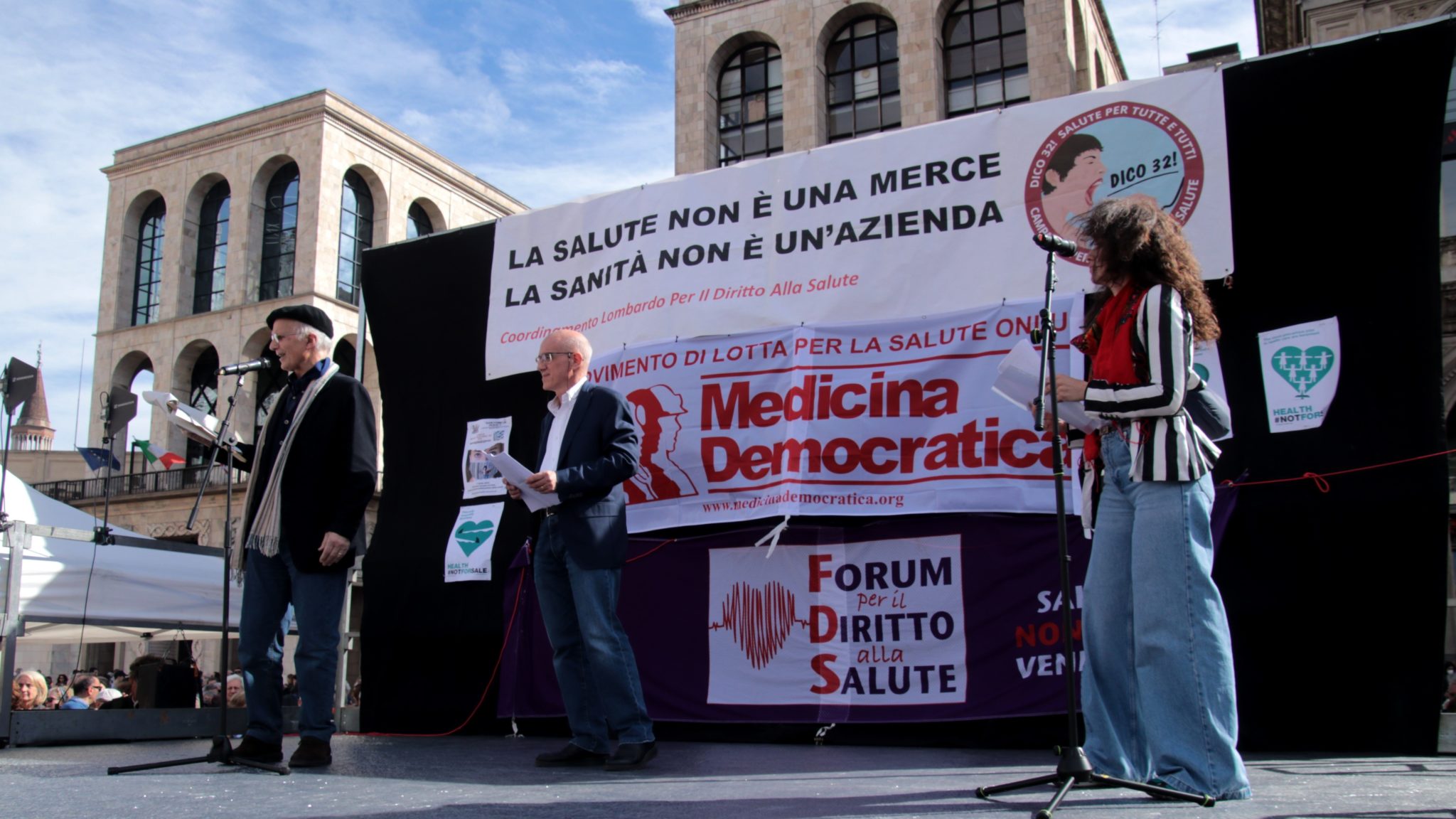‘All Eyes on Rafah’ as Global Protests Against Looming IDF Assault Continue
Original article by BRETT WILKINS republished from Common Dreams under Creative Commons (CC BY-NC-ND 3.0).

Demonstrators turned out from Cardiff to Tel Aviv as Palestinians in the Gaza city endured heavy Israeli bombing while bracing for an all-out ground invasion.
Global emergency protests against Israel’s expected invasion of Rafah continued Tuesday, a day after demonstrators took to the streets of cities around the world to say “hands off” the southern Gaza city whose population has swelled more than fivefold due to the influx of Palestinian war refugees.
Hundreds of protesters turned out in the cold and rain of Cardiff, Wales Tuesday afternoon, with demonstrations planned for later in the day in cities including Manchester, England and Houston, Texas.
“We do not care if it is raining—it’s raining bombs in Rafah over a million Palestinians, squeezed into an area barely the size of an airport,” protest co-organizer Black Lives Matter Cardiff & Vale said on social media.
In Tel Aviv, a crowd of left-wing Israelis protested outside the headquarters of the Ministry of Defense, holding signs with messages including “Stop Bombing Gaza” and “Stop Funding Genocide.”
Tuesday’s demonstrations followed Monday protests around the world including outside both the White House in Washington, D.C. and British Prime Minister Rishi Sunak’s residence on Downing Street in London. Rallies and marches also took place in cities including Rome, New York, Los Angeles, Toronto, Vancouver, and at U.S. President Joe Biden’s campaign headquarters in Wilmington, Delaware, where 21 Sunrise Movement climate activists were arrested.
Airstrikes on Rafah are intensifying as the Israel Defense Forces appear poised to launch a major ground invasion of the besieged city on the Egyptian border. Hundreds of Palestinians have been killed and wounded in Rafah since Israeli Prime Minister Benjamin Netanyahu’s Friday order to the IDF to create an evacuation plan for the 1.5 million people in the city, most of them refugees from other parts of Gaza.
South African officials said Tuesday that Israel’s bombing of Rafah and stated intent to invade the city are violations of the International Court of Justice’s order for Israel to “take all measures within its power” to prevent acts of genocide. The court found in a preliminary ruling that Israeli forces were “plausibly” committing genocide, as alleged in the South Africa-led case.
The looming invasion of Rafah comes amid a wider war on Gaza in which more than 100,000 Palestinians have been killed, maimed, or left missing by Israeli bombs and bullets since October 7, when Hamas led deadly attacks on southern Israel and kidnapped over 240 Israelis and others. Around 90% of Gaza’s 2.3 million people have been displaced and a majority of the besieged strip’s homes have been damaged or destroyed by Israel’s relentless onslaught.
Senior officials from Israel, the U.S., Egypt, and Qatar met in Cairo on Tuesday to resume negotiations for an extended cease-fire in Gaza in exchange for the release of the approximately 130 hostages held by Hamas.
Original article by BRETT WILKINS republished from Common Dreams under Creative Commons (CC BY-NC-ND 3.0).
- UN Warns Of Israeli War Crimes As Rafah Invasion Looms ›
- Expanded Rafah Assault Would Be ‘Stain On Israel’ And Its Backers: Refugee Group ›
- Will Egypt Ditch Camp David Accords If Israel Invades Rafah? ›
- As IDF Rafah Invasion Looms, Progressives Urge Biden To ‘End The Complicity’ In Gaza Genocide ›
- IDF Rescues Two Hostages While Killing Dozens Of Palestinians In Rafah ›
- Israeli Plan To Evacuate Rafah By Force Sparks Warnings Of ‘Ethnic Cleansing’ ›

